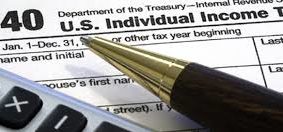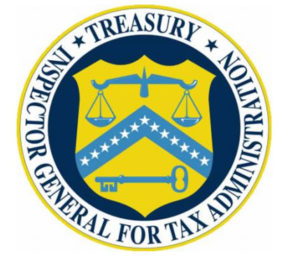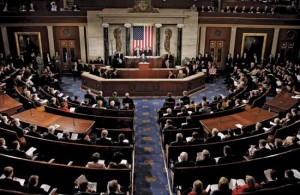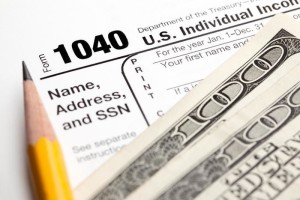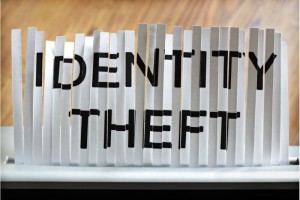TREASURY INSPECTOR GENERAL FOR TAX ADMINISTRATION
Monday, November 25th, 2019 @ 2:07PM
Billions of Dollars of Potentially Erroneous Carryforward Claims Are Still Not Being Addressed
August 28, 2019
CFEG reports that on August 28, 2019 the Treasury Inspector General For Tax Administration (TIGTA) released a report on billions of dollars of potentially erroneous carryforward claims not being addressed by the IRS.
https://www.treasury.gov/tigta/auditreports/2019reports/201940044fr.pdf
TIGTA reported that there are certain tax credits and deductions which have annual limits that prevent taxpayers from deducting the full amount in a single year. For these types of credits and deductions, provisions in the tax code allow the unused amount to be carried back and/or forward (referred to as a carryforward credit/deduction) to a prior or future year’s tax return. While each credit and deduction has separate requirements, in general, the credits and deductions can be carried back one year and forward up to 20 years until the full amount of the credit or deduction is taken. https://www.treasury.gov/tigta/auditreports/2019reports/201940044fr.pdf
Carryforward Credit
A carryforward credit reduces a taxpayer’s tax liability. TIGTA found that for tax year 2015 there were 6.1 million tax returns (both individual and business) that were filed. A total of $134.6 billion was claimed in tax credit. The number of carryforward returns amounted to 2.5 million returns. The total carryforward credits amounted to $81.5 billion. https://www.treasury.gov/tigta/auditreports/2019reports/201940044fr.pdf
Carryforward Deduction
TIGTA reported that a carryforward deduction reduces a taxpayer’s taxable income. The deductions are similar to credits except they can be used to directly reduce future income rather than tax. Deductions not allowed to be deducted in the current year are carried back one year and forward to the next year until the initial deduction is used up. https://www.treasury.gov/tigta/auditreports/2019reports/201940044fr.pdf
TIGTA found that for tax year 2015 there were 52.1 million tax returns (both individual and business returns) that were filed. A total of $953.2 billion was claimed in deductions. The number of carryforward returns amounted to 6.5 million returns. The total carryforward deductions amounted to $55.9 billion. https://www.treasury.gov/tigta/auditreports/2019reports/201940044fr.pdf
In its report TIGTA identified 19,193 taxpayers claiming a carryforward credit or deduction with discrepancies totaling more than $5 billion that was used to offset tax. https://www.treasury.gov/tigta/auditreports/2019reports/201940044fr.pdf
TIGTA in its report used the following hypothetical as an example of the type of discrepancies it identified that made up the more than $5 billion in overstated credit and deduction claims: Taxpayer A claims a carryforward credit totaling $1,500 on his or her Tax Year (TY) 2014 tax return. The taxpayer has a pre-credit tax liability of $1,000 for which $1,000 of the carryforward credit is applied to reduce the tax to zero. Taxpayer A would show on his or her TY 2014 tax return that he or she has $500 in unused credit remaining and available to carry forward to TY 2015. https://www.treasury.gov/tigta/auditreports/2019reports/201940044fr.pdf
TIGTA noted in its report that in prior reviews it had identified discrepancies related to the amounts of carryforward General Business Credits claimed by both individual and business filers. https://www.treasury.gov/tigta/auditreports/2019reports/201940044fr.pdf
In its report TIGTA found that there were 9,365 individual returns claiming a potentially erroneous carryforward credit. It found that the tax effect of that was $128.4 million. It also found that there were 8,394 individual returns claiming a potentially erroneous carryforward deduction. It also found that the tax effect of that was $74.5 million. https://www.treasury.gov/tigta/auditreports/2019reports/201940044fr.pdf
In its report TIGTA found that there were 1,423 business returns claiming a potentially erroneous carryforward credit. It found that the tax effect of that was $4.9 billion. It also found that there were 11 business returns claiming a potentially erroneous carryforward deduction. It also found that the tax effect of that was $$298,582. https://www.treasury.gov/tigta/auditreports/2019reports/201940044fr.pdf
In sum, if potentially erroneous carryforward claims continue to not be addressed by the IRS the result will be a continued loss of revenue for the U.S. Treasury.
Posted by cfegov
Categories: IRS Errors In Processing Tax Returns

